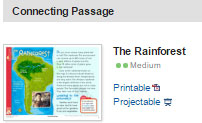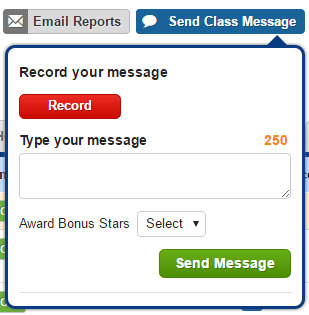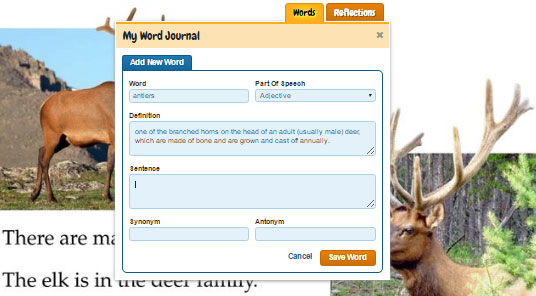Teaching and practicing close reading is essential to helping students become proficient readers and succeed on high stakes tests. However, it can be difficult to find the resources needed for effective instruction and engaging practice. Our newest product, Raz-Plus, allows you to strengthen the connection between the close reading skills you introduce in the classroom and the close reading that students practice on their own.
Raz-Plus Close Reading Packs are a versatile way to engage a diverse range of students through a blended learning approach that promotes learning through various modes of instruction. Each pack includes printable, projectable and digital reading resources that can be used for large- and small-group interaction and independent practice. Each pack features 4 different leveled passages and a Connecting Passage that center around a Key Question.
|
|
Teacher-led Instruction |
|---|
You can begin a pre-reading activity by introducing the Key Question (for example, “How does someone’s environment affect how they live?”) and discussing students’ initial responses. Prepare students for small-group and independent work by modeling close reading strategies—annotation, highlighting, and underlining—with a projectable passage, like “The Mountains,” that relates to the Key Question.
|
|
Small Group Activities |
|---|
After the introduction and modeling, students experience individual practice and small group discussion.
- Each student reads one of four different passages in printable or digital formats and completes a graphic organizer to organize their thinking and demonstrate understanding
- Students share ideas about how their passage helps answer the Key Question
- All students in the small group read the Connecting Passage and then discuss how their first answer to the Key Question may have changed based on new information in the Connecting Passage

Once students have collaborated to reach a consensus answer in their small groups, reconvene the whole class to discuss how each small group developed their own answer to the Key Question. Ask students to cite certain pieces of evidence, or explain what they underlined or highlighted, when sharing their answers.
|
|
Student Practice and Informal Assessment |
|---|
To reinforce in-class close reading demonstrations, assign students the digital versions of the rest of the Close Reading Pack passages for at-home practice. Through the Raz-Plus student management hub, you can send a message to the whole class that gives additional direction for independent practice, such as asking students to type a short reflection in their eJournal about the Key Question after reading the additional passages. Your message can explain to students that their reflections should cite text evidence that helps answer the Key Question.

You can also message individual students about assignments. If you notice a student struggling with a particular skill during class, such as vocabulary, you can encourage them to look up words as they read and add them to the "My Word Journal" section of their eJournals. Checking students' reflections and word journals can serve as informal assessments that allow you to track students' ongoing progress and give them targeted support in a timely manner.


A balanced blended learning approach empowers you to make the most of what you already do in the classroom by giving you the flexible tools you need to differentiate instruction. With the flexibility to teach the whole class, small groups, or individual students through Raz-Plus, you can address skill deficits and give students personalized instruction and encouragement that improves their close reading performance.


